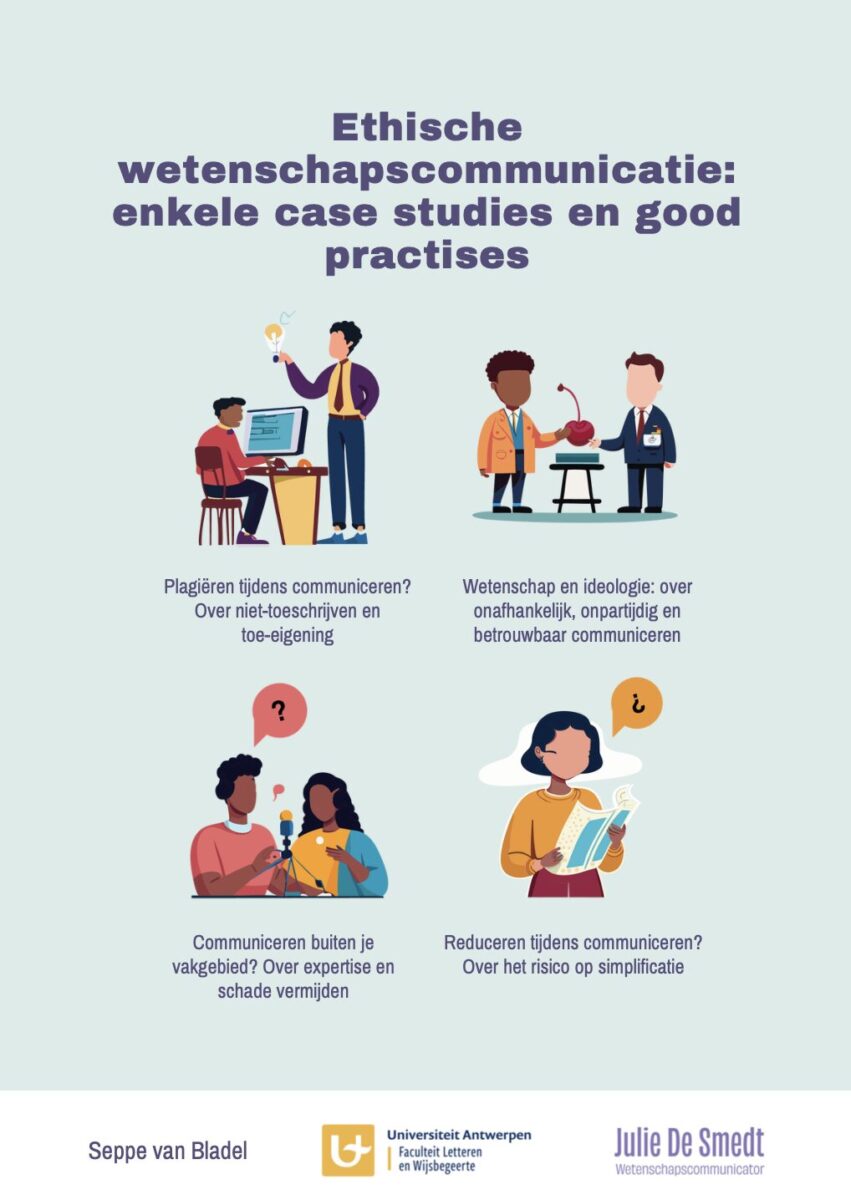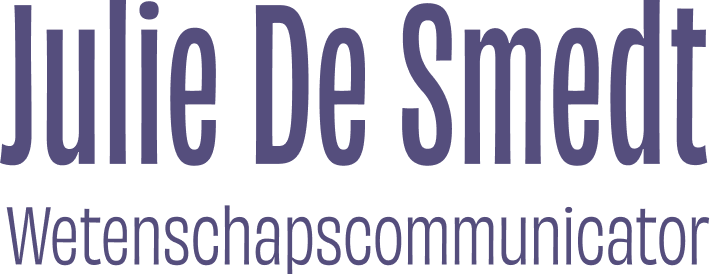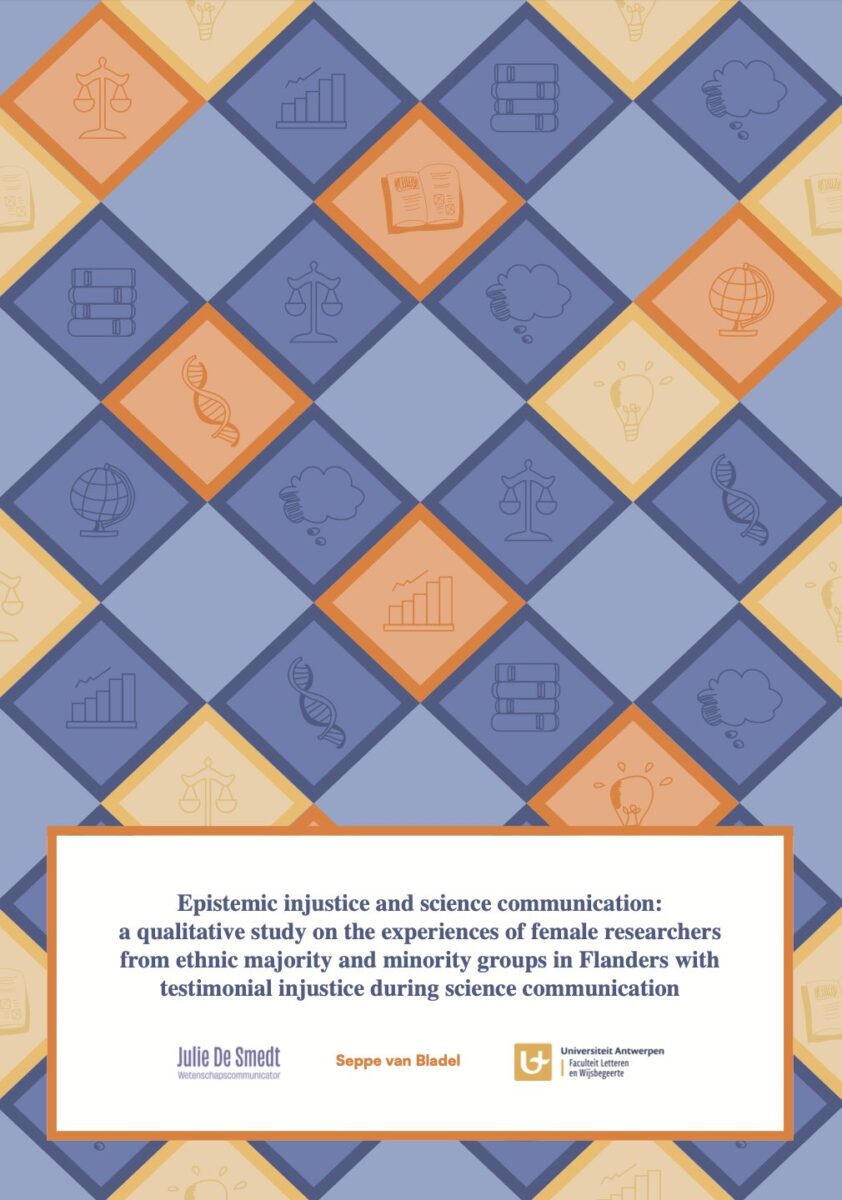Case studies en best practices
Ethische wetenschapscommunicatie
- Krijg je vragen over onderwerpen waar je geen expertise in hebt?
- Vrees je dat journalisten zullen oversimplifiëren?
- Hoe verwijs je elegant naar andermans onderzoek in jouw communicatie, zonder te ‘plagiëren’?
- Voel je druk van externe opdrachtgevers? Wat nu?
Vul jouw mailadres in, en je krijgt direct toegang tot de minicursus van 20 pagina’s.
Drop je mailadres hieronder en ontvang de cursus
"*" geeft vereiste velden aan

Deze cursus werd ontwikkeld door Seppe van Bladel, masterstudent Wijsbegeerte (Uantwerpen, 2023-2024) in het kader van zijn masterthesis en Community Service Learning.
De minicursus ‘Ethische wetenschapscommunicatie’ biedt enkele antwoorden via concrete case studies en do’s & don’ts.
Met ondersteuning van promotoren Prof. Dr. Kristien
Hens en Dr. Mayli Mertens, en van mezelf (Julie De Smedt) vanuit de praktijk.
Masterproefproject Seppe van Bladel: Epistemic injustice, ethiek en wetenschapscommunicatie
De masterthesis van Seppe onderzoekt de vraag: Welke ervaringen hebben vrouwelijke onderzoekers met niet serieus genomen worden tijdens wetenschapscommunicatie? En hoe kunnen we verandering teweeg brengen?
Titel: Epistemic injustice and science communication: a qualitative study on the experiences of female researchers from ethnic majority and minority groups in Flanders with testimonial injustice during science communication
Doel van het onderzoek:
- Exploratief: voor het eerst verzamelen we data over getuigenisonrecht tijdens wetenschapscommunicatie.
- Actiegericht: we gaan na wat vrouwelijke onderzoekers belangrijk vinden om sociale verandering teweeg te brengen.
Methode: Kwalitatief intersectioneel onderzoek
Abstract: Over the past few years, a growing body of literature has addressed issues of inclusion, diversity, and (gender) inequality within higher education institutions at global, European, and Flemish levels. Additionally, research has been conducted on researchers’ experiences with harassment during public interactions. However, the specific area of discrimination and negative experiences within science communication remains underexplored. While this issue is reflected in the existing literature, it has primarily emerged from the practical experiences of Julie de Smedt, a freelance science communicator. She frequently hears from researchers during science communication training sessions that they engage in science communication but are often not taken seriously by their audiences. This practice-based research aims to fill this gap. Specifically, the study employs qualitative research methods to investigate the experiences of female researchers from underrepresented groups in Flanders (n=10) with testimonial injustice during science communication (exploratory) and to identify their perspectives on what is necessary to achieve social change (action-oriented). The findings reveal that female researchers encounter identity-based knowledge devaluation across various forms of science communication, and they emphasize the importance of synergistic measures and efforts from both institutions and science communication organizations and professionals to foster social change.


